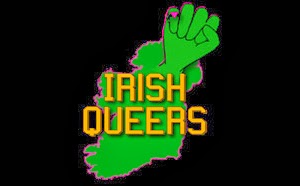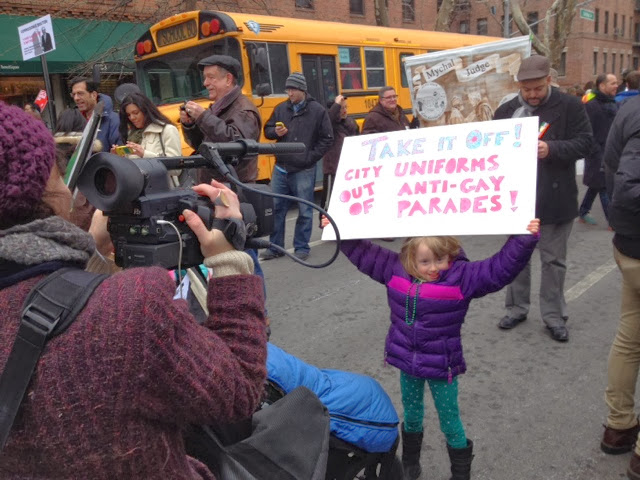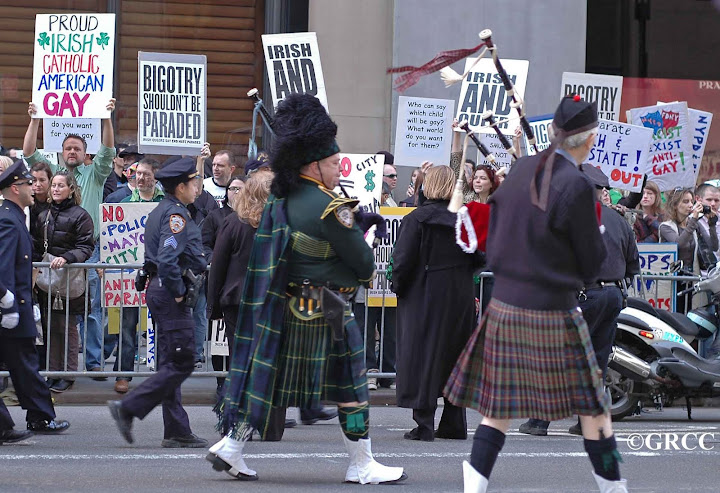After John Dunleavy’s 25 years of being the standard-bearer
for religious homophobia, Irish Queers are of course glad to see him go.
Dunleavy’s contributions to the Irish community include likening Irish LGBT
people to the KKK, and claiming that being openly gay is a political statement
(while insisting with a straight face that the NYC St. Patrick’s Day parade is not
a political event.) His positions finally became untenable; it’s only
incredible that it has taken so long.
The reasons behind Dunleavy’s ouster are something to
celebrate. In the referendum on May 22, Ireland roundly rejected homophobia and
the authority of the Catholic church to dictate Irish culture. Irish Queers and
its predecessor, the Irish Lesbian and Gay Organization, have staged the same
battle at the parade. We have posed the legacy of Irishness as a powerfully
diverse set of experiences – and a history of throwing off chains – against the
religious vision of Irishness as a closed, provincial identity that erases so
many people’s real lives. The question of whether queers can take our place in
Irish history and culture is now settled.
But the NYC St. Patrick’s Parade Committee is not led by the
Irish or Irish American community. The parade is still exclusively held by the
same men who enforced anti-gay bigotry over the past two decades. Their version
of “inclusion” last year amounted to adding OUT@NBCUniversal instead of an
Irish LGBT group. (OUT@NBC were so tightly controlled that, when asked by
reporters how it felt to march, gay marchers they said they weren’t allowed to
discuss it.) Who knows what exciting version of inclusion they’ll offer us this
year with the addition of one more handpicked, battened-down group?
Some voices in Irish New York politics have called for
parade organizers to end to the ban on “good” gays – those who have not
protested, but instead participated in the fundraiser-and-mass circuit where
the parade’s homophobes are welcomed. Taking that advice would be in keeping
with the Parade Committee’s history of making the smallest change possible
without actually opening the parade to Irish LGBT communities. But we were
never in this to reform the men of the Parade Committee.
In breaking other chains, Ireland has represented itself
brilliantly – from the referendum, to the rise of antiracist movements, to
insisting that water is a human right. If the parade can’t catch on, it will
find itself like John Dunleavy: out of time.









